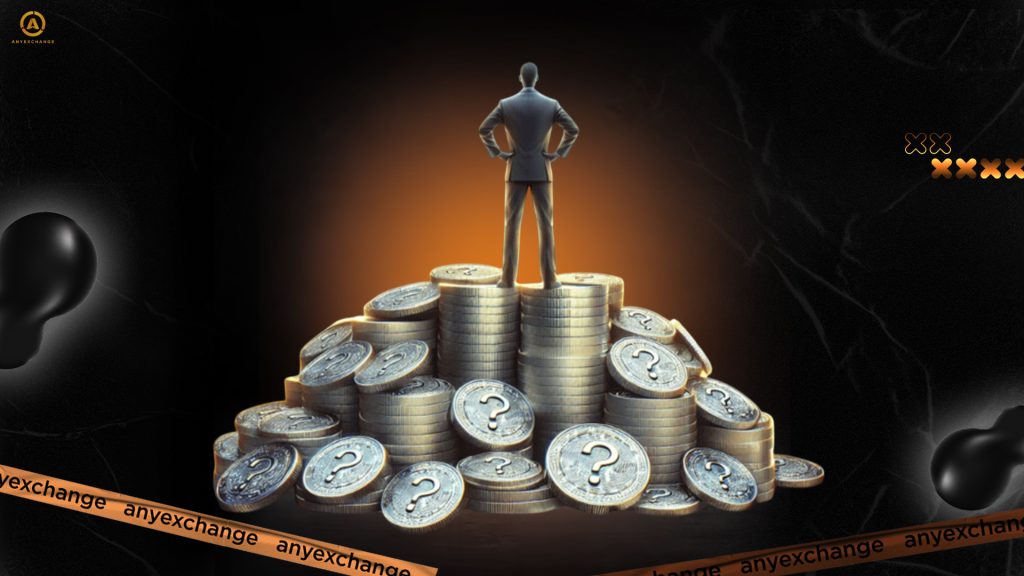
According to data from Messari and PitchBook, venture capital investments in cryptocurrency startups grew by 32% in 2024, reaching approximately $9.5 billion. Despite the bear market and pessimistic sentiment at the beginning of the year, this trend continued — the second half of 2024 was marked by a revival of interest in investing in young blockchain projects.
Crypto startups are new companies in the early stages of developing products and services based on blockchain technology, cryptocurrencies, decentralized finance (DeFi), non-fungible tokens (NFTs), and related fields. These startups offer innovative solutions for transparent finance, digital asset management, digital identity, metaverses, and sustainable development. Despite the risks, startups in the cryptocurrency segment have recently been attracting more and more investment. Why is this happening? Let’s try to figure it out.
The Current Situation in the Crypto Startup Market

First, let’s look at some comparative data from traditional markets. In traditional venture capital, the average annual return is around 10-15%. Successful crypto venture funds, on the other hand, show significantly higher results.
Multicoin Capital is an example of a “super-successful crypto fund.” Since its launch in October 2017, Multicoin Capital’s assets have grown by 20,287%, and its venture fund has grown 28x relative to its investments. These are phenomenal financial results. No traditional venture fund can boast such figures.
According to a regular study by CV VC (Crypto Valley Venture Capital) and PwC (PricewaterhouseCoopers), the weighted average annual return of the blockchain sector is 177%. For the period 2010–2022, more than 1,000 blockchain companies were evaluated, mainly startups that received early-stage funding. In other words, a typical traditional venture capital investment yields up to 15%, while successful blockchain projects and crypto funds generate supernormal returns in the hundreds or even thousands of percent.
Regarding the current market situation, venture capital funding for crypto startups amounted to approximately $9.3–9.5 billion in 2024, according to DefiLlama — an increase of 26% compared to 2023. In the first quarter of 2025, $4.8–4.9 billion had already been invested, which is a 40–54% increase compared to the fourth quarter of 2024. In other words, by the end of the first quarter of this year, crypto startups had secured over 60% of last year’s total venture capital investments.
Experts are also observing another interesting trend. While the market was saturated with poorly developed ideas and a high level of fraud during the ICO boom (2017–2018), crypto startups today are demonstrating a more mature approach to product development and capital raising. According to research reports, up to 90% of projects ceased operations within the first year after launch back then. From 2024 to 2025, however, this figure dropped significantly. According to Messari and Galaxy Research estimates, fewer than 40% of startups are “stillborn” or fail to advance to the scaling stage. Projects are now more likely to undergo audits, establish legally sound structures, and develop transparent monetization models. This qualitative shift explains why funding for crypto startups is gaining trust and becoming more attractive to venture investors. Nevertheless, late-stage projects continue to receive the most funding, accounting for 65% of investments in the first quarter of 2025.
Venture capital funds dominate late-stage deals. Major players in this space inсlude a16z Crypto, Coinbase Ventures, Binance Labs, and Animoca Brands. Meanwhile, crowdfunding and IDOs remain popular for early-stage crypto startups. For instance, the CoinList platform is still used to launch new tokens through public offerings. Forms of participation range from equity investments to token purchases and hybrid models.
Investment Trends in Crypto Startups in 2025

They are moving towards practical application and institutional interest. One of the main growth factors is the demand for crypto startups in decentralized finance (DeFi), which account for about 25% of investments. This is followed by venture investments in GameFi (15.1%) and investments in non-fungible token (NFT) projects (11%) and Layer 1/2 solutions.
The following areas stand out as accurately matching global trends among the actively growing segments today:
- Tokenization of real assets (RWA), as seen with the startups Ondo Finance (which offers tokenized US bonds) and RealT (which works with tokenized real estate in the US).
- Development of Web3 solutions in the social and educational spheres: Lens Protocol (decentralized social networks) and Open Campus (educational content on the blockchain).
- Another area is sustainable blockchain projects that comply with ESG principles, such as the Toucan Protocol (carbon credits on the blockchain) and the KlimaDAO.
How to Invest in Crypto Startups

First, research the market and trends to understand which sectors are growing. Next, sеlect a project and determine the form of participation and investment channels. Investors can choose a format that suits them, ranging from purchasing tokens at an early stage through ICOs, IDOs, or IEOs to investing in equity capital through tokenized securities or SAFE structures. Corresponding platforms exist for each format. Examples inсlude crowdfunding platforms for crypto startups (e.g., CoinList, Seedify, and Republic Crypto); decentralized exchanges, such as Uniswap and PancakeSwap, where crypto startup tokens are traded; launchpad platforms; and DAOs, which provide access to token presales and voting. Larger investors can participate in venture investments through angel and institutional rounds.
Advantages and Risks
Advantages of Investing in Crypto Startups
The main attraction for investors is, of course, the high returns offered by crypto startups. In the early stages, returns of over 1,000% can be achieved if the project is successful. In addition to potentially high returns, crypto investors benefit from:
- Access to innovation — projects often develop breakthrough solutions in DeFi, NFT, Web3, AI, and other areas..
- The opportunity to diversify their investment portfolio by adding a venture component based on cryptocurrencies.
Risks of Investing in Crypto Startups
- Volatility of cryptocurrencies and related tokens. Even a successful project can depreciate due to market fluctuations.
- Crypto startups are subject to unstable regulation. Some countries may impose restrictions, bans, and licensing requirements.
- Risk of failure. No one can guarantee that a new project will survive.
Risk Management Strategies when Investing in Crypto Startups
- Conducting in-depth fundamental analysis.
- Making small investments in each individual project and subsequently adjusting positions.
- Diversification by sector (DeFi, NFT, and infrastructure), stage (pre-seed, seed, and Series A), and geography.
SAFE (Simple Agreement for Future Equity) is an increasingly popular tool — a simplified agreement whereby the investor provides funds now and receives a share of the capital in the next investment round. These structures allow both parties to speed up the process and reduce risks: investments are officially recorded, and the terms of future participation are defined in advance.
How to Choose a Promising Crypto Startup
To sеlect the best crypto startups for investment, focus on the following key fundamental analysis parameters:
- Team: Analyze the profiles of the founders and key participants, considering their experience and reputation within the professional community. Check the team’s publicity and their presence on LinkedIn, X (Twitter), and GitHub, as well as their successful cases.
- Technology and Implementation: The uniqueness of the idea, technological foundation, and solution architecture are evaluated. The roadmap is important: Are the deadlines realistic? Have the stated stages been completed? How is product development going in practice?
- Tokenomics: We consider the purpose of the token, distribution mechanisms, blocking, and issuance. Mature tokenomics motivates long-term participation and prevents excessive sales pressure, which could cause the price to plummet.
- Market and ecosystem: It is important to understand the significance of the problem the project solves, the size of the market, and who the competitors are. Signs of maturity inсlude strategic partnerships, funding support, and integration into existing blockchain ecosystems.
- Transparency and regulatory compliance: Having a legally sound structure and KYC increases trust in the project. Currently, both startup teams and investors are required to undergo KYC. For startup teams, it confirms their legality and increases trust. For investors, it is a prerequisite for participating in IDO and other financing methods aimed at reducing legal risks.
Specialized resources are used to make more informed decisions when evaluating crypto startups:
- Messari provides dossiers on crypto projects, analytical reports, tokenomics, growth metrics, and news.
- CryptoRank is a platform with ratings, token charts, data on funding rounds and participants.
- TokenUnlocks tracks token unlocking schedules to help assess potential price pressure.
Successful crypto startups demonstrate the value of having information about projects in the early stages for investors to conduct in-depth analyses:
- StarkWare, a Layer 2 solution for scaling Ethereum, has raised hundreds of millions of dollars from leading funds, including Paradigm and Sequoia.
- LayerZero Labs, an inter-network interaction protocol, has successfully completed several funding rounds with the participation of a16z and Samsung.
- EigenLayer, a restaking startup, has become a key player in DeFi with a TVL of over $15 billion.
Conclusion
Investments in crypto startups are among the most profitable, yet high-risk, areas for venture capital. To build a balanced portfolio with high return potential, investors should take into account key project evaluation criteria and strictly follow risk management strategies.
According to analysts at Electric Capital and other research centers, the future of crypto startups will largely determine the prospects for global financial systems. In 2025, we may see exactly how this will be implemented in practice.
Thank you for your attention. Invest safely and profitably!
AnyExchange is an exchanger that allows you to convert cryptocurrency at the most favorable rates and make fast, secure money transfers around the world.
FAQ
What are crypto startups?
They are young companies that create products and services based on blockchain technology, cryptocurrencies, decentralized finance (DeFi), non-fungible tokens (NFTs), and Web3.
Why are investments in crypto startups popular?
First and foremost, it’s due to their high potential for profitability, the opportunity to invest in promising technologies early on, and access to a growing market.
What risks are associated with investing in crypto startups?
The main risks are the low competitiveness of crypto projects in the early stages, high token volatility, and weak regulatory protection.
How can you choose a reliable crypto startup to invest in?
Conduct an in-depth fundamental analysis, studying all aspects of the project and the growth trajectory of its sector.
What trends are expected for crypto startups in 2025?
Expect growing interest in Web3, the tokenization of real assets, sustainable blockchain solutions, DeFi infrastructure, and AI integration.
Can you invest in crypto startups through tokens?
Yes, one common way is to participate in an IDO/ICO or purchase tokens on the secondary market. This approach enables investors to support a project and gain a stake in its ecosystem.
How does regulation affect crypto startups?
It depends on the jurisdiction. Some countries have strict controls in place that can limit how capital is raised. However, the general trend is toward establishing a legal framework that promotes investor protection and institutional entry.
Which platforms are suitable for investing in crypto startups?
Popular options inсlude crowdfunding sites, such as CoinList, Seedify, and Republic Crypto; IDO-supported exchanges, such as DAO Maker and Polkastarter; and specialized venture capital funds.
What are the advantages of investing in blockchain projects?
First and foremost are portfolio diversification, access to cutting-edge technologies, and the opportunity to enter a developing market early on.
How can the profitability of a crypto startup be assessed?
It can be predicted based on historical data from similar projects, the current market situation, the tokenomics model, and the stage of development.





